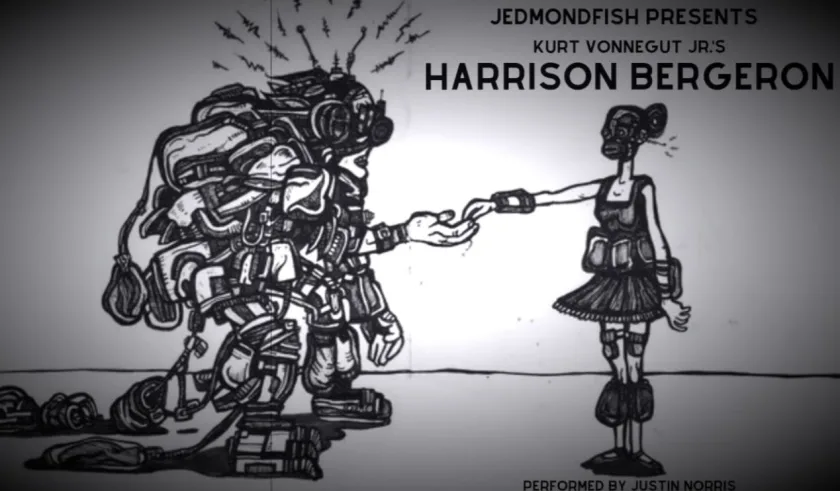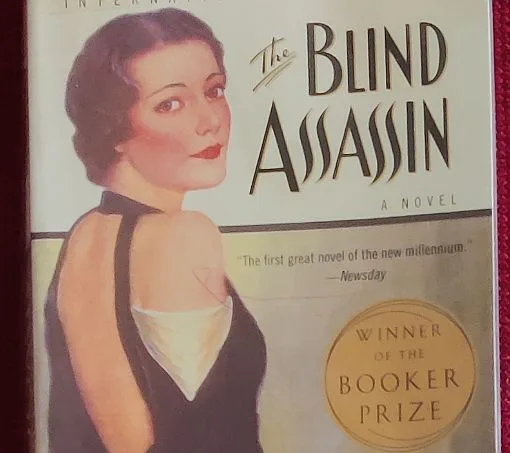
Writers, let me be more specific, science fiction writers are visionaries. Pick up any sci-fi classic, isn’t the themes and repercussions hint at some kind of inevitability? Every science fiction novel that I have read so far has given us a peek into the future and help us understand where our current choices might lead us. Within this genre, themes and repercussions often serve as cautionary tales or reflections of contemporary societal issues.
For me, Kurt Vonnegut is one of the names that fall into the category of absolute literary brilliance. It’s hard to find the right words to capture just how impactful and thought-provoking his works are.
His ability to blend satire, wit, and profound insights into the human condition is simply unparalleled. Whether it’s his iconic works like “Timequake”, “2BR02B”, “Slaughterhouse-Five” or “Harrison Bergeron” , Vonnegut has this unique knack for captivating readers with his thought-provoking narratives and darkly humorous style. He’s one of those writers who leaves an indelible mark on our mind, making us think deeply about life, society, and the absurdities of it all.
I could talk endlessly about the brilliance of science fiction, but today, I’m excited to discuss my recent read: “Harrison Bergeron” by Kurt Vonnegut. It was first published in 1961. This captivating story has really captured my attention lately, and I’m eager to dive into its themes and ideas. The story is set in a dystopian future where society has achieved so-called equality. Let’s dive further.
The Plot
In the world of “Harrison Bergeron” universal equality has been enforced through harsh, authoritarian methods. Those with exceptional abilities in strength, intelligence, attractiveness, or talent are forced to wear handicaps or masks and disruptive sounds to suppress their abilities.
Set in the year 2081, equality is enforced by law. The introduction of the 211th, 212th, and 213th Amendments to the Constitution justifies the use of brutal force against innocent citizens in this dystopian society.
This approach stifles personal skills in a bid to create equality among individuals with varying levels of talent. In reality, the authorities are striving to standardize all citizens to the least skilled among them, a scheme supervised by the United States Handicapper General, the firearm-carrying Diana Moon Glampers. Her chief aim is to eliminate anyone who poses a challenge to the status quo of average and insufficient performance.
In this dystopian society, individuals who stand out are consistently suppressed, apprehended, institutionalized, and ultimately eliminated for deviating from the norm. The protagonist and namesake, Harrison Bergeron, embodies such a threat as he possesses physical prowess, attractiveness, intellect, and worst of all, a rebellious spirit. Consequently, he is burdened with significant handicaps:
- disruptive noises
- an extra 300 pounds of weight
- headache-inducing eyeglasses, and
- alterations to his appearance to render him unattractive.
Despite these obstacles, Harrison manages to infiltrate a television station and proclaim himself the new ruler. Casting aside his handicaps, he dances with a ballerina. Her exceptional beauty and talent are marred by the authoritarian regime, aiming to stifle her individuality and brilliance.
The story ends abruptly with two shotgun blasts, revealing society’s unforgiving stance toward those who defy conformity to mediocrity. Bergeron’s parents watch television, witnessing their son’s tragic fate. Yet, they’re unable to fully grasp its significance due to distractions.
Harrison’s parents witness his murder but can’t remember why they’re sad. This hints at their acceptance of a world that stifles rebellion and promotes uniformity.

Takeaway
The beginning of the narrative establishes clearly that equality is a main theme.
“The year was 2081, and everybody was finally equal. They weren’t only equal before God and the law. They were equal every which way. Nobody was smarter than anybody else. Nobody was better looking than anybody else. Nobody was stronger or quicker than anybody else.”
But reality is otherwise. In this bleak world, enforced equality stifles individuality and talent. This prompts reflection on genuine equality’s feasibility and desirability.
The story also stresses individualism’s significance through characters like Harrison and Hazel Bergeron. It highlights the connection between being true to oneself and reaching one’s full potential, fostering creativity, and experiencing love. The narrative warns against a society that enforces conformity, showing how it can suppress these qualities and limit personal growth and fulfillment.
Continuous suppression of exceptional abilities and emotions yields a society devoid of beauty, joy, and genuine human connections. This diminishes the richness and depth of human experience. And consequently, fostering emptiness and disconnection among its members.
Although the story is an exaggeration, yet Vonnegut prompts his readers to question their own beliefs about equality. And to consider the potential risks of enforcing it through oppressive means.
Vonnegut has this incredible way of crafting narratives that stick with us long after we’ve finished reading, and “Harrison Bergeron” is definitely no exception. The book is a masterpiece of dystopian fiction that continues to resonate with readers for its incisive social commentary and timeless relevance. It’s a testament to Vonnegut’s genius as a writer and his ability to shine a light on the darker aspects of human nature and society.
If you enjoy exploring speculative futures and the implications of societal control for extreme conformity, this book is a must read.



